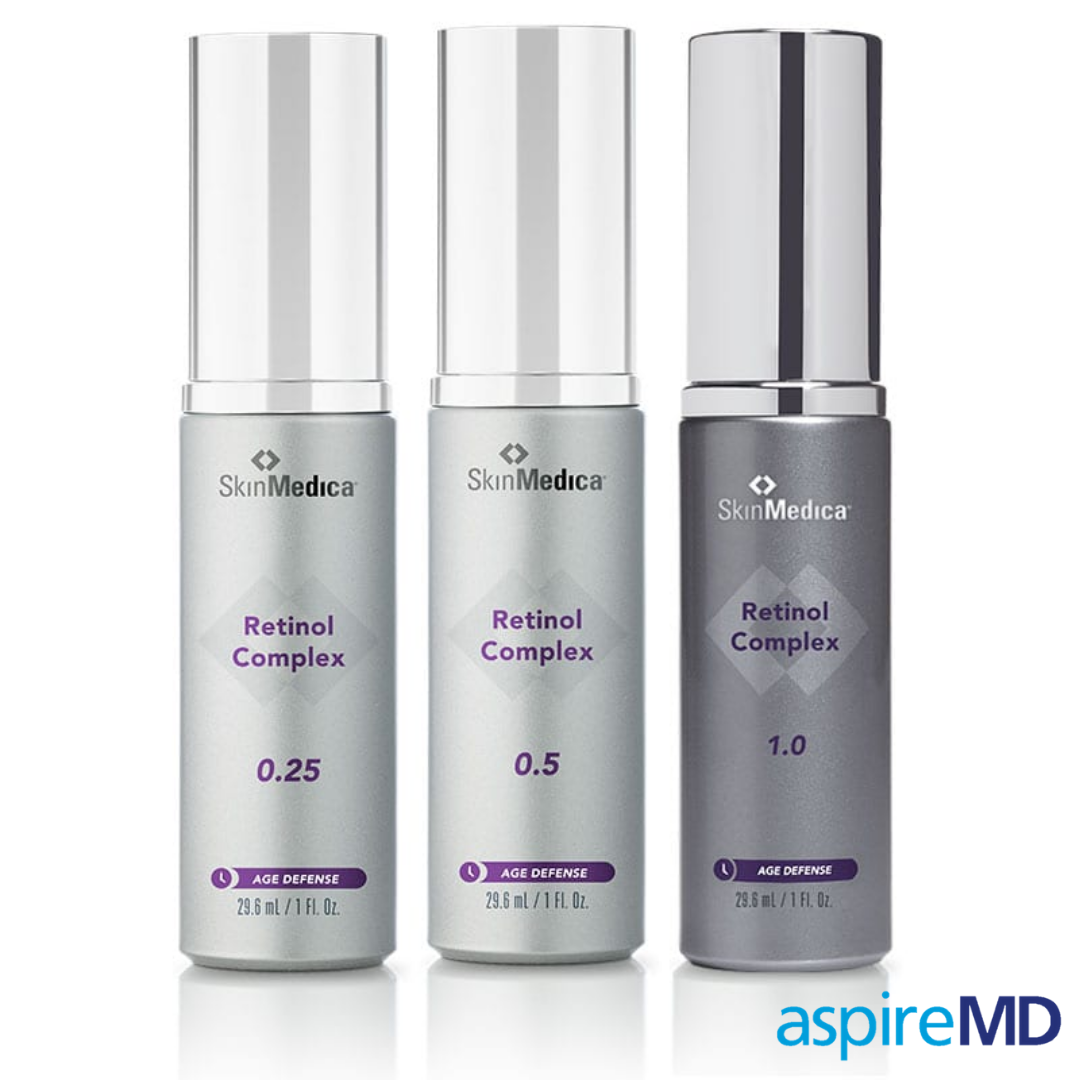
Retinol is confusing. There are so many types! Retinyl, Retinol, Retinoid, Retinoic Acid? Let’s clear up both your skin and the confusion!
Retinol is the unsung hero of our optimal aging skin care regimen. For decades it’s proven its value and effectiveness at reducing/preventing fine lines and wrinkles, reducing acne scarring, smoothing texture and enhancing our skin’s tone. It does this by stimulating our skin cells (epidermal) turnover, also by promoting collagen and elastin synthesis, thereby revealing vibrant, healthy skin.
Retinol and retinoids are both derivatives of Vitamin A, that are ultimately converted into retinoic acid. It is retinoic acid that is doing the antiaging work at the cellular level.
Retinols are typically found in OTC products because they are weaker, so won’t be as irritating. The tradeoff is that the less potent product will take longer to reveal results and may be less than optimal in their end point. Retinols are also a different molecular structure (the ester form – that’s retinyl) so it requires more steps for the skin to change it into the active retinoic acid form, again loosing potency in the process.
Retinoids are prescription strength. They have a higher concentration of the active ingredient retinoic acid, thereby readily available for the skin to use. The flip side of this is that these prescriptions are far more likely create a ‘retinization’ which leads to redness, dryness and flaking. These products are used primarily to treat active acne.
IMHO, there’s a desirable compromise to glean the good yet minimize the bad of the coveted RETIN advantage. That is Medical grade retinol! Medical grade offers a higher, focused concentration of retinol. There has also been a lot of science invested into the cream vehicle that transports the retinoic acid to the cellular level where it works its antiaging magic! This skin care technology prevents the potentially irritating acid from sitting on the surface skin which creates side effects like the less sophisticated prescription retinoid has the tendency to do.
aspireMD’s SkinMedica Retinol has gone one step further to encapsulate each retinoic acid molecule in a moisturizing, antioxidant PhytoShield TM Complex to maximize delivery and minimize irritation.

Instructions For Use:
- Proper professional skin care guidance is paramount to your successful use of retinol.
- aspireMD’s skin health team will help you navigate the choices. We will always recommend starting at the lowest concentration and gradually upgrading.
- Nighttime application is a must, as sun deactivates the retinoic acid.
- Apply to clean, dry skin.
- Slowly ease into a retinol routine. Start by applying every third night. If after two weeks, your skin is tolerating the retinol well, increase to every second night for two weeks. When your skin is content, it’s time to up-level to every night!
- Applying a moisturizer on top of your retinol will ease your tolerability.
- Be aware that if you are prone to dry and sensitive skin, you certainly may enjoy the skin smoothing, optimal aging benefits of retinol – you will just need to invest a little more in preparing your skin prior to your retinol introduction. And likely take even longer getting to once nightly application.
- Oily skin generally tolerates retinol very well.
Meet you at aspireMD’s skin care counter to guide you in your YOUnique skin care routine.

